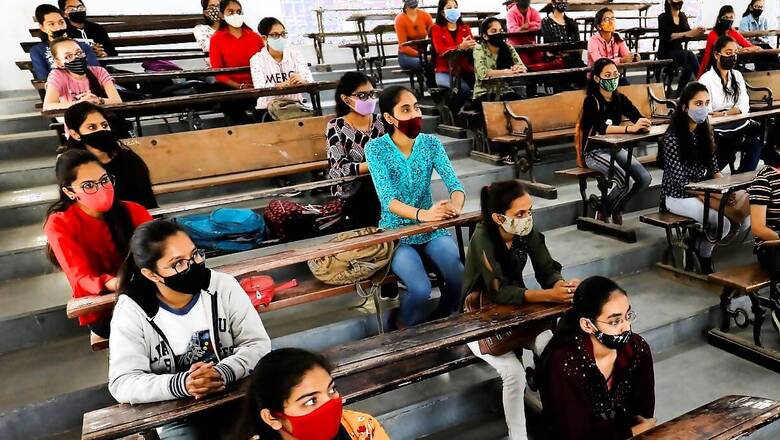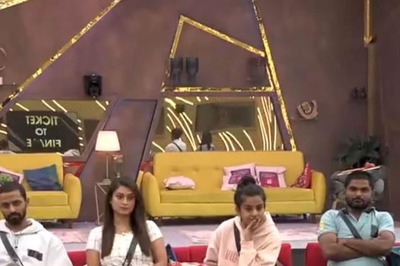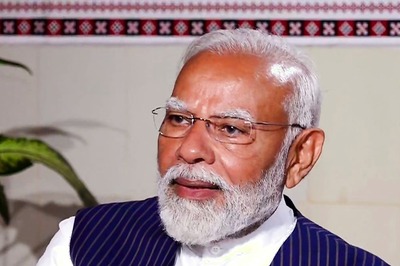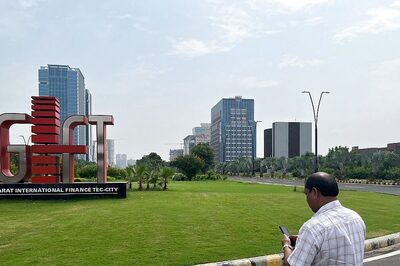
views
Right from the provisions laid out in the new National Education Policy (NEP) 2020, changes in school textbooks, curriculum formulation to a national entrance exam for entry to medical colleges, education as a subject has become the latest flashpoint between Prime Minister Narendra Modi-led central government and the Opposition-ruled states, more so in the run-up to the 2024 Lok Sabha polls.
While the Opposition-ruled states such as Kerala, Karnataka, Tamil Nadu and West Bengal, among others, have not adopted NEP fully or even partially, the debate on scrapping the National Eligibility-cum-Entrance Test (NEET) once again was ignited by TN chief minister M K Stalin, days after a father-son duo died of suicide as the student was not able to clear the exam.
On August 12, a 19-year-old medical aspirant, who failed to clear NEET twice died by suicide in Chennai. Two days later, his father, who was not able to bear the loss and he too took the extreme step. On August 14, CM Stalin announced that the entrance exam can be scrapped amid rising suicide cases. NEET is conducted by the Centre across India for entry to medical colleges.
Earlier in 2021, the DMK government in Tamil Nadu introduced anti-NEET legislation in the state assembly, which though passed by the House was rejected by the governor of the state, RN Ravi. The state government had argued that NEET favours students, who can spend lakhs on coaching classes and gives an “advantage” to those affiliated to the Central Board of Secondary Education (CBSE) over state boards. The CM had also said that the medical test promotes “inequality” and is “discriminatory” in nature and against the principles of social justice, as it “marginalises” the poor and those from rural backgrounds for lack of resources.
While largely experts and academicians have supported NEET for streamlining the process and having a uniform standard for aspirants across the country, a section of academia and social activists have been against it as well citing that India is too diverse a country for mandating a common entry level exam.
Ashok Ganguly, former CBSE chairperson, denying the claims of NEET being “discriminatory”, said, “No. NEET does not give any advantage to any national boards because it is not conducted on any curricula specific to any board. It is based on core curricula which are supposed to be taught at the +2 level. Actually, some of the state boards have to upgrade themselves to the next level in teaching learning and assessment, which is not happening”.
He added that is also a “myth” that it is of any disadvantage to students of rural backgrounds. NEET is being conducted now in various regional languages, which was not the case earlier. “We have to realise the fact that not every student is supposed to crack such an examination. The parents, the school and the society have to realise this. We need to have the required aptitude and attitude to be successful in such professional entrance examination,” said Ganguly.
Similarly, the case of NEP 2020, designed by the Centre as a guiding principle to bring about a paradigm shift in education has not gone down well with several states, academics and experts. Many underlying provisions of the new education policy, which replaces the existing NEP, 1986 (formulated by Congress), such as the three-language formula, which makes teaching Hindi the second language, besides English, have not gone down well with the Opposition-ruled states and has since been a matter of political slugfest.
While Kerala opposed the policy saying it was “too centralised” that went against popular concerns, the Tamil Nadu government led by DMK too announced last year that it will not implement NEP and instead set up a panel to draw up a new state education policy.
TN CM Stalin has been against the NEP and had termed it a policy for the “elites.” He has reservations against the three-language policy and the prominence given to Sanskrit over Tamil and other old languages.
During the recent monsoon session of the Parliament, Stalin also raised the issue of bringing back education as a subject from the existing ‘concurrent’ list to the ‘state’ list. Subjects under the current list are governed both by the Parliament and the state assemblies, with the Centre having supremacy on matters over states. Earlier, education was a state subject only, but it was moved to the concurrent list during the Emergency period under the Congress rule.
Congress-led Karnataka state education department has decided not to adopt the policy, terming it “incompatible” with the federal system of governance.
Karnataka CM Siddaramaiah during a general body meeting of the state unit on Monday said that NEP will be scrapped from next year in the state and will instead be replaced by a State Education Policy (SEP). The Congress in its manifesto for assembly elections had resolved to scrap NEP, which will be done from next year. Recently in the state assembly too, the CM had said that the Centre’s new education policy has several “anomalies” and that a uniform education system does not suit a country like India, which has diverse religions, cultures and languages.
West Bengal led by the TMC government has also set up a committee to “examine” the NEP 2020 and has not been responding to the Centre’s direction to all states to share updates on the implementation of the new policy.
The National Council for Educational Research and Training (NCERT) has been a battlefield as well. The council has been at odds with the state councils, especially of southern states, over the recent deletions of several chapters/references from school textbooks (from classes 6 to 10) of history, political science, sociology and economics. While the NCERT has been calling it a “syllabi rationalisation” exercise, the Opposition, activists and a section of academics claimed that the changes made were a bid to “saffronise” education.
The textbook deletions, which came into effect this April included references to Mahatma Gandhi’s assassination by Nathuram Godse, Mughal courts, the 2002 Gujarat riots, the cold war era and the rise of Islamic empires in Afro-Asian territories, among others.
Opposing the changes, Kerala state education minister V Sivankutty announced in April that it will re-introduce the deleted portions in the state’s textbooks. On Monday, he announced that supplementary textbooks for classes 11 and 12, incorporating portions removed by the NCERT, will be distributed to students in September.




















Comments
0 comment